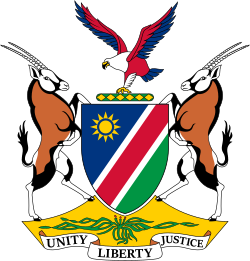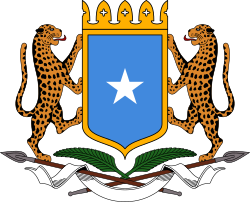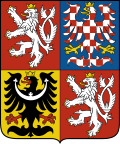Africa
Algeria
| | This section is empty. You can help by adding to it. (December 2024) |
Benin
Presidential elections were held in Benin on 11 April 2021 to elect the President of the Republic of Benin for a five-year term. Incumbent president Patrice Talon was re-elected for a second term in office with 86% of the vote. [1]
Burkina Faso
General elections were held in Burkina Faso on 22 November 2020 to elect the President and National Assembly. [2] In the presidential elections, incumbent president Roch Marc Christian Kaboré of the People's Movement for Progress was re-elected in the first round with 57.9% of the vote, avoiding the need for second round. The main campaign focus of the major presidential candidates was the growing insecurity in the country with the rise in terrorism and ethnic violence. [3]
Burundi
General elections were held in Burundi on 20 May 2020 to elect both the president and the National Assembly. [4] Évariste Ndayishimiye of the ruling CNDD–FDD was elected president with 71% of the vote. In the National Assembly elections, the CNDD–FDD won 72 of the 100 elected seats. The Conference of Bishops of Burundi issued a statement criticizing the transparency and freedom of the election process. The church deployed around 2,716 observers across Burundi's 119 municipalities. The conference's observers witnessed intimidation and expulsion of opposition observers from the polling and vote counting stations. The church condemned the ruling party for engaging in national election fraud. [5] [6] The East African Community issued a statement saying that "The 2020 Burundi elections hold an iconic place in the history of the nation, marking this the first peaceful and democratic transfer of power. More significantly, the process was domestically driven through own funding. The peaceful conclusion of the electoral process will not only be a big win for the people of Burundi, but for the East African Community as a region." [7]
Cameroon
Parliamentary elections were held in Cameroon on 9 February 2020. [8] The Cameroon People's Democratic Movement retained its majority in parliament, winning 139 of the 167 seats decided on election day. The ongoing Anglophone Crisis dominated the process, with supporters of Ambazonia calling for a boycott of the election. Ensuing violence resulted in a low turnout in the Northwest Region and Southwest Region, with separatists claiming that 98 percent of eligible voters had boycotted the election. [9]
Cape Verde
Parliamentary elections were held in Cape Verde on 18 April 2021. The current prime minister, Ulisses Correia e Silva of the Christian democrat Movement for Democracy (MpD) party, won re-election after five years of government. [10] His main contender was Janira Hopffer Almada, of the moderate socialist African Party for the Independence of Cape Verde (PAICV). The two parties have been the dominant political forces in Cape Verde since its democratization, but several new parties were taking part in the election. [11]
Comoros
Legislative elections were held in the Comoros on 19 January 2020; in constituencies where no candidate received a majority, a second round was held alongside local elections on 23 February. The elections were boycotted by the main opposition parties, including the two largest parties in the outgoing parliament, the Union for the Development of the Comoros and Juwa Party, in protest at constitutional reform and political repression, [12] [13] [14] The result was a landslide victory for President Azali Assoumani's Convention for the Renewal of the Comoros, which won 20 of the 24 elected seats.
Côte d'Ivoire
Presidential elections were held in Ivory Coast on 31 October 2020. The election, boycotted by the opposition, saw the reelection of incumbent Alassane Ouattara. Several people were killed in clashes in Toumodi, [15] as well as Tiébissou. [16]
Djibouti
Presidential elections were held in Djibouti on 9 April 2021. [17] Incumbent president Ismaïl Omar Guelleh was re-elected for his fifth five-year term, having served in the role since 1999. [18]
Egypt
| | This section is empty. You can help by adding to it. (December 2024) |
Ghana
General elections were held in Ghana on 7 December 2020. Incumbent president Nana Akufo-Addo of the New Patriotic Party (NPP) was re-elected in the first round after securing a majority of the votes. [19] Former president John Dramani Mahama said he would contest the results. [20]
Guinea
Parliamentary elections were held in Guinea on 22 March 2020 alongside a constitutional referendum, [21] [22] [23] after being postponed four times from the original date of January 2019. [24] [25] [26] [27] [28] [29] The 2020 Guinean presidential election resulted in a third term for President Alpha Condé, with protests against him resulting in at least 30 deaths according to the opposition. [30]
Kenya
| | This section is empty. You can help by adding to it. (December 2024) |
Mali
Parliamentary elections were held in Mali on 29 March 2020, with a second round on 19 April. [31] They were initially scheduled to be held on 25 November and 16 December 2018, [32] but were moved to April 2019 and then to June 2019, [33] [34] before being postponed until 2020 by the Council of Ministers. [35] The elections were marred by violence in the north and center of the country. [36]
Incidents on April 19 prevented some people from casting votes, and on 30 April the Constitutional Court overturned the results in 31 districts, giving Rally for Mali, which is led by President Ibrahim Boubacar Keïta, ten more seats than originally expected. [37] Opposition parties led by Iman Mahmoud Dicko established the Mouvement du 5 juin - Rassemblement des forces patriotiques(in French) (June 5 Movement - Rally of Patriotic Forces) on 30 May, and thousands took to the streets in protest on 5 June. [37]
Boubou Cisse was reappointed prime minister on 11 June, when he was instructed to form a new government. [37] Tens of thousands of Malians protested again on 19 June, demanding the resignation of President Keïta. [38] On June 20, the Economic Community of West African States (ECOWAS) called for new elections to be held. [38]
President Ibrahim Boubacar Keïta and Imam Mahmoud Dicko met on 5 July, [39] but the opposition continued to call for civil disobedience to force Keïta's resignation and the dissolution of Parliament. [37] Protests turned violent on 10 July. [37] For the next three days, protesters in Bamako clashed with security forces, [40] and security forces reportedly fired live rounds at the protesters, killing at least 11 and injuring 124. [41]
Morocco
| | This section is empty. You can help by adding to it. (December 2024) |
Namibia
2024 election
 |
|---|
General elections were held in Namibia to elect a new president and members of the National Assembly. [42] [43] [44] Initially scheduled on 27 November 2024, these were later extended in some areas to 30 November due to poor planning. Opposition parties decried the move, boycotting the declaration of results and pledging to challenge the results of the election in court. They were the country's seventh general elections since gaining independence from apartheid South Africa in 1990.
On 3 December 2024, Netumbo Nandi-Ndaitwah of the ruling SWAPO party was declared the winner of the election. She would become Namibia's first female president. The National Assembly elections saw SWAPO reduced to 51 seats, a bare majority of three. It was SWAPO's weakest showing since Namibia's independence in 1990.Nigeria
 |
|---|
The 2023 Nigerian presidential election was held on 25 February 2023 [a] to elect the president and vice president of Nigeria. [45] Bola Tinubu, the former governor of Lagos State and nominee of the All Progressives Congress won the election with 36.61% of the vote, just under 8.8 million votes to defeat over runners-up former vice president Atiku Abubakar (Peoples Democratic Party) and former governor of Anambra State Peter Obi (Labour Party). Other federal elections, including elections to the House of Representatives and the Senate, held on the same date while state elections were held on 18 March. [45] The inauguration was held on 29 May 2023. [46]
Party primaries were conducted between 4 April and 9 June 2022 with the Peoples Democratic Party nominating Abubakar on 28 May while the All Progressives Congress nominated Tinubu on 8 June. [47] [48] For the Labour Party and New Nigeria Peoples Party, Obi was nominated on 30 May and former Governor of Kano State Rabiu Kwankwaso was nominated on 8 June, respectively. [49] [50] In the weeks after the primaries, vice presidential running mates were announced with Abubakar choosing Governor Ifeanyi Okowa on 16 June while his main opponents initially selected placeholder running mates before later substituting in substantive nominees. [51] [52] [53] Obi selected former Senator Yusuf Datti Baba-Ahmed on 8 July, Tinubu picked Senator Kashim Shettima on 10 July, and Kwankwaso chose pastor Isaac Idahosa on 14 July. [54] [55]
Issues surrounding the election included corruption, insecurity, the state of the economy, and national unity. Additionally, there was considerable focus on the impact of identity — ethnic, regional, and religious — throughout the campaign.
The general election was noted by initially high projected turnout and lack of a peaceful voting process. It was marred by reports of vote buying, voter intimidation, attacks on polling units in certain areas, and unpunctual electoral officials along with accusations of outright fraud; [56] [57] to compound issues with trust in the election, Independent National Electoral Commission officials failed to upload polling unit results to the INEC result viewing portal as previously assured would happen on election day. [58] [59] [60] As state results started to be announced on 26 February at the national collation centre in Abuja, opposition emerged as results data had still not been fully uploaded prior to their announcement in accordance with the law. [61] [62] These circumstances along with statements critical of INEC from observers and civil society groups led the Abubakar, Obi, and Kwankwaso campaigns to question and then officially reject the announced election results by 28 February. [63] [64] [65] [66] All three main opposition campaigns, in addition to some civil society groups and former President Olusegun Obasanjo, called on the commission to rerun the election due to fraud and violence. [67] [68] [69] [70] [71] Meanwhile, the Tinubu campaign praised the commission and called for the arrest of PDP spokesmen for "incitement of violence." [72] In the early morning of 1 March, INEC chairman Mahmood Yakubu declared Tinubu as the victor after all state results were collated. [73] In response, Abubakar, Obi, and Kwankwaso rejected and vowed to challenge the results. [74] [75] [76] [77]Seychelles
General elections were held in Seychelles on 22–24 October 2020 to elect the President and members of the National Assembly. [78] The National Assembly elections had been due in 2021, [79] but in July 2020 were brought forward by President Danny Faure in order to hold them together with the presidential elections, a proposal supported by opposition parties. [80] [81]
The presidential elections were won by Wavel Ramkalawan of the Linyon Demokratik Seselwa (LDS), with the LDS also increasing its majority in the National Assembly, winning 25 of the 35 seats.
Somalia
 |
|---|
|
Presidential elections were held in Somalia in 15 May 2022. [82] The election was held indirectly and after the elections for the House of the People, which began on 1 November 2021 and ended on 13 April 2022. [83]
The elections were first scheduled to end on 24 December 2021. [84] [85] [86] [87] By 25 December, only 24 of 275 representatives had been elected and the ongoing political crisis further complicated matters. [87] The incumbent president, Mohamed Abdullahi Mohamed, had been in office since the February 2017 election and his term expired on 8 February 2021; however, it was extended until after the elections would be completed. [88] On 10 January 2022, Somali leaders announced they struck a deal to complete presidential and parliamentary elections by 25 February, after repeated delays that have threatened the stability of the country. The agreement was reached after several days of talks, hosted by Roble, with state leaders aimed at ending an impasse over the polls. [89] On 25 February, the presidential election was further postponed to 15 March. [90] On 15 March, the presidential election was again further postponed to 31 March in order to complete the election of the House of the People. [91] On 13 April, the election of the House of the People was completed. [83] The presidential elections date was thereafter set for 15 May. The International Monetary Fund threatened that Somalia would lose access to a three-year $400-million aid package if a new administration was not in place by the end of May. [92]
After three rounds, involving 38 candidates, parliamentary officials counted more than 165 votes in favour of Hassan Sheikh Mohamud, more than the number required to defeat the incumbent president. He was declared president in a peaceful transition of power after the incumbent president conceded defeat and congratulated the victor. [93] Celebratory gunfire rang out in parts of Mogadishu. [94] The United Nations in Somalia welcomed the conclusion of the election, praising the “positive” nature of the electoral process and peaceful transfer of power. [95]South Africa
| | This section is empty. You can help by adding to it. (December 2024) |
Tanzania
General elections were held in Tanzania on 28 October 2020 to elect the President and National Assembly. [96] The presidential election was won by incumbent John Magufuli of the Chama Cha Mapinduzi party. [97] On 24 October 2020 the opposition claimed that the government was interfering in the election by making it more difficult to accredit thousands of opposition electoral observers, whose job is to ensure that the election is fair. [98] The opposition has also claimed that the National Electoral Commission, whose members are appointed by the president, have barred the challenger Lissu from campaigning while letting the incumbent Magufuli campaign. [99] From 27 October, the Tanzania Communication Regulatory Authority (TCRA) blocked several popular social media websites to restrict communication amid violence in the islands of Zanzibar, where dozens have been shot dead and tens have been injured by the police and other security forces. [98] Tanzania electoral watch panel, [100] USA State Department, [101] Commonwealth, [102] and European Union [103] were very critical about the elections.
Togo
Presidential elections were held in Togo on 22 February 2020. [104] Incumbent president Faure Gnassingbé of the Union for the Republic (UPR) was re-elected for his fourth term with 71% of the vote in the first round. [105] His closest challenger was Agbéyomé Kodjo, a former prime minister and leader of the newly established Patriotic Movement for Democracy and Development, who received 19% of the vote.
After observing the elections, ECOWAS determined that they were free and transparent, commending the population for its peaceful participation as an improvement from protests years prior against the long reign of the Gnassingbe family. [106] However, sporadic internet shutdowns were recorded across the capital and other major cities, prompting both international watchdogs and opposition parties to question the results. [107]
On 25 February Kodjo filed a petition at the Constitutional Court asking it to overturn the results. [108] Three days later, he and Kpodzro called for public protests, resulting in the military surrounding their homes and the Ministry of Territorial Administration stating that protests would be illegal. [108] Members of the National Assembly responded by accusing Kodjo of planning a coup. [109]
Tunisia
| | This section is empty. You can help by adding to it. (December 2024) |
Zambia
| | This section is empty. You can help by adding to it. (December 2024) |
Zimbabwe
| | This section is empty. You can help by adding to it. (December 2024) |

